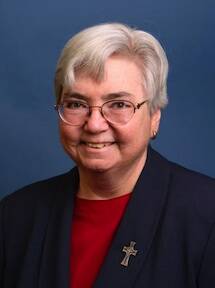Preparation for the October 2015 Synod on the Family may help the U.S. church face pressing problems.
The church faces a challenge of disunity, some of it from polarization. Threats to unity have crept into the church from adversarial politics that permeate cultural warfare and political skirmishes related to religious liberty, gay rights and the definition of marriage. At times one feels meanness within our walls.
Concentration on the family, a topic of deep concern to those who care more about the church’s pastoral life than its political life, can unite us. No matter what their political persuasion, most people care more for family concerns than for political issues.
Among the issues:
In a divided society, what gives children the security that roots them in God and others? How do families pass on the faith when the church itself is riven with disagreements?
How do family members support one another even when some choose lifestyles at variance from the norm? Norms change.
How do families support children of divorce? How are divorced family members helped to feel whole despite the pain that accompanies divorce?
How can children of gay couples feel welcomed by families and neighbors that are not configured as theirs?
Do single family members have special needs for lack of one special person in their lives? Do they have obligations, such as financial ones, based on their ability to offer support to others?
The church needs a plan to gather data. Should it be through parish surveys? This is basic data collection, but if associated with discussion programs, surveys could lead people to a new understanding of one another. Many people can be reached only through parishes if they do not participate in church groups. How do we reach singles, for example?
Should data gathering come through organizations? This has pros because the groups already exist. Family life groups can examine what young couples who struggle to establish families want. They can study how people can develop a religious life alongside career development.
Religious ed groups can study family life at various stages. Do grandparents have something to give? For many families, the older generation can offer children and grandchildren wisdom acquired over decades.
Vocation groups have data that tells how family life affects career choices. Catholic school educators are well placed to show the effects of educational development on family life.
The Diocese of Des Moines, Iowa, led by Bishop Richard Pates, already is immersed in a year of the family. Archbishop Blase Cupich of Chicago had begun preparation for the synod in his previous diocese, Spokane, Wash., before going to Chicago. Both may have programs other dioceses can imitate.
Issues like poverty are pertinent, but we need to watch politically oriented groups that would use church pastoral issues to promote political causes as we go into the next presidential election campaign. Use of the church for political purposes has been no small problem of late.
A whole new approach to synod preparation may lie in seeking what each can do individually to promote healthy families. Should I view what I do this year through a family filter? How can I help my own family as I consider the younger generation, grandparents, newlyweds and singles—who mean so much to me?
A critical U.S. family issue includes immigrants in the shadows. At work, they fear they might not return home one day because of something as scary as an immigration raid. Their undocumented children educated in this country have a tenuous guarantee of a permanent home, thanks to an executive order by President Obama. Their parents do not have a similar guarantee, not even a tenuous one.
The Synod on the Family offers challenges and opportunities. Time is moving rapidly as the church considers Pope Francis’ request for input. If the U.S. church can change the conversation to what we can do to empower families, we will have made a needed statement on unity and what it means to be Catholic today.









Why wait for the bishops to do something about the survey?
Parishes, groups, and anyone with a website can design and collect their own data using SurveyMonkey.com. In the 2014 survey the bishop of our diocese asked priests to respond to the questions. Several local parishes did their own surveys tailoring them to the needs of the parish using Survey Monkey. In my parish, the priest summarized the results and sent them to the bishop with a cover letter talking about them in terms of his own priestly ministry, and published everything on the parish web pages.
If parishes begin to design their own studies, and share them on the web, some are likely come up with very good questions and very interesting data. Social scientists always pretest their questions, especially if as in this case there is not a long history of previous data for comparison purposes.
In order to get CARA to do a national study that showed the majority of us clergy and lay leaders rejected the new Roman Missal, http://www.praytellblog.com/index.php/2014/04/08/cara-study-majority-of…
the PrayTellblog started with its own survey
http://www.praytellblog.com/index.php/2013/05/21/what-us-priests-really…
As I commented at that time “The substantial number of dioceses (32), the large size of the sample (1536) and the high response rate (42%) in combination with the fact that the results are not very lopsided (39% liked the Missal) make this study very credible, a benchmark for the future.” which is exactly what it became in the CARA study.